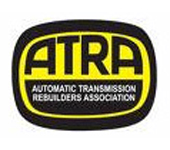817-446-7295 or 682-321-7117 | 2921 S Cooper St #101 Arlington, TX 76015
AUTONET TV
Archive for February 2024Positive and Negative (Battery Care)Posted February 11, 2024 7:16 AMYou notice when your smartphone's battery starts to go weak on you. It runs out of juice faster than it did when it was new. Bet you pay attention to that pretty closely. Unfortunately, many of us don't pay the same attention to the battery in our vehicles. If your battery got you through the cold-weather months, you might be thinking you're all set until next winter. But you might be surprised to learn this: Hot weather is harder on a battery than cold weather. (Note: we're talking about a conventional vehicle here, not an all-electric, plug-in one.) The way your vehicle's battery holds a charge is that it has chemicals inside it, and they react with each other to produce electricity. A vehicle battery discharges electricity and then needs to be recharged. Unlike your smartphone that you plug in each night to charge, the way a vehicle's battery gets recharged is by using the mechanical energy of the engine. It's a pretty cool system that's been around for a while. An alternator changes the mechanical energy into electricity that then charges the battery. And your vehicle is designed to charge it just the right amount with a voltage regulator. If your battery constantly gets too much voltage, it could stop holding a charge. Another way a vehicle battery loses its ability to hold a charge is when it gets hot. In warmer weather, some fluids in your battery evaporate which can damage some of its internal components. Then, you've got a dead battery. Back to your smartphone for a second, it probably has a little indicator or maybe an app that shows you how healthy it is or how much charge it's holding. Well, your service repair facility has equipment that can test your vehicle's battery for the same things. If that test shows you need a new battery, then it's probably time to replace it. A technician can also check to see your battery is being charged at the correct rate. If you have a battery that is not sealed, a technician can check to see it needs more water added to it. The technician will also make sure dirt or other contaminants aren't acting as electrical conductors and discharging the battery. Plus, your battery's terminals may need cleaning. Most people just forget about their vehicle's battery until there's a big problem with it. Here's one rule of thumb: expect a battery's life to be about 5 years. Just like you wouldn't want your smartphone to leave you without any way to make phone calls or send texts, you wouldn't want your vehicle to leave you stranded with no way to start it, would you? When it comes time to make that new battery choice, your service advisor can offer you some good options, taking into account the climate you drive in, what you use your vehicle for and what your budget is. Hey, your smartphone's battery is all charged up. How about calling your service advisor for an appointment right now?
Giving CV Joints the Boot! (CV Joint and Boot Replacement)Posted February 4, 2024 10:31 AMEver wonder how your vehicle’s transmission is connected to your wheels? After all, when you hit a pothole or some other uneven part of a road’s surface, there has to be something that can maintain the connection between the transmission and the wheel yet keep everything moving at the same speed. That very cool device is called a CV joint, a kind of driveshaft running to each wheel. The CV stands for constant velocity because it keeps the drive wheels moving at a constant speed (velocity). They’re used mostly on front-wheel drive vehicles but also in rear-wheel and all-wheel drive vehicles. The joints move up and down and adjust to bumpy surfaces. Plus, they are covered in a rubber boot which protects them from road debris and also holds lubrication in. There’s a CV joint and boot on the transmission side and one on the wheel side. Unfortunately, the spot that usually fails first is that rubber protective cover (the boot). After a lot of wear, tear, bumps, road hazards, heat, and you name it, the rubber rips and the lubrication leaks out. At that point, it must be replaced. Here are signs to tell if your CV joint is bad.
Sometimes if a broken boot early is caught early, a technician can pack in new grease and replace just the boot. But if the lubrication has leaked out and the joint is already wearing badly, the CV and boot both have to be replaced. Give your vehicle the boot (as in a new boot) and CV joint, and you’ll be back on the road to your next destination. Westmoreland Transmissions | ||
SearchArchiveApril 2018 (16)May 2018 (5) June 2018 (4) July 2018 (5) August 2018 (4) September 2018 (5) October 2018 (4) November 2018 (4) December 2018 (5) January 2019 (5) February 2019 (4) March 2019 (5) April 2019 (4) May 2019 (4) June 2019 (5) July 2019 (4) August 2019 (4) September 2019 (5) October 2019 (4) November 2019 (4) December 2019 (5) January 2020 (5) February 2020 (4) March 2020 (5) April 2020 (4) May 2020 (5) June 2020 (4) July 2020 (4) August 2020 (5) September 2020 (4) October 2020 (4) November 2020 (5) December 2020 (4) January 2021 (6) February 2021 (4) March 2021 (4) April 2021 (4) May 2021 (5) June 2021 (4) July 2021 (4) August 2021 (5) September 2021 (4) October 2021 (5) November 2021 (4) December 2021 (4) January 2022 (6) February 2022 (4) March 2022 (4) April 2022 (4) May 2022 (5) June 2022 (4) July 2022 (5) August 2022 (4) September 2022 (4) October 2022 (5) November 2022 (4) December 2022 (4) January 2023 (5) February 2023 (4) March 2023 (4) April 2023 (5) May 2023 (4) June 2023 (4) July 2023 (5) August 2023 (4) September 2023 (4) October 2023 (5) November 2023 (4) December 2023 (4) January 2024 (5) February 2024 (4) March 2024 (5) April 2024 (4) May 2024 (4) June 2024 (5) July 2024 (4) August 2024 (4) September 2024 (5) October 2024 (4) November 2024 (4) December 2024 (5) January 2025 (4) February 2025 (4) March 2025 (5) | CategoriesWhat Customers Should Know (40)Steering (7)Maintenance (8)Fuel Economy (4)Keys to a long lasting vehicle (2)Check Engine Light (2)Air Conditioning (8)Battery (8)Auto Safety (4)Tires and Wheels (2)Transmission (3)Alternator (2)Fuel Saving Tip: Slow Down (2)Shocks & Struts (3)Fluids (2)Automotive News (1)Winter Prep (2)Brakes (10)Older Vehicles (1)Cooling System (4)Service Intervals (1)Drive Train (2)Oil Change (5)Service Standards (1)Windshield Wipers (2)Headlamps (2)Winter Tires (1)Exhaust (5)Customer Detective Work (1)Fuel System (1)Tires (7)Alignment (3)Tire Rotation and Balancing (2)Transfer Case Service (1)Suspension (1)Safety (2)TPMS (1)Inspection (2)Timing Belt (2)Shocks and Struts (1)Brake Service (1)Spark Plugs (1) | |














